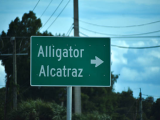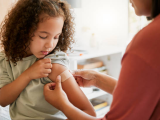Apr 27, 2010 (CIDRAP News) – In the latest developments surrounding suspected adverse reactions to the seasonal flu vaccine in Australian children, an autopsy revealed no clear link to immunization in the death of a 2-year-old, and vaccine maker CSL said it has found no evidence of a bad batch connected to cases reported so far.
The adverse events that the country's health officials are investigating involve CSL's seasonal flu vaccine, which covers the pandemic H1N1 virus. So far most of the reports are concentrated in West Australia state, which unlike other states offers free seasonal flu vaccine for children under age 5.
West Australian officials have received 250 reports of possible adverse reactions, the Australian Associated Press (AAP) reported today. Queensland has also received some adverse-event reports and is investigating the death of a 2-year-old Brisbane girl who died about 12 hours after receiving the vaccine.
The events prompted Australian health officials on Apr 23 to ask health providers to stop giving children under age 5 the vaccine while it investigated fever and convulsions in some children who had received it. At the same time CSL said it stopped shipping the pediatric version of its Fluvax vaccine while it and health authorities investigate the events.
Dr Jeanette Young, Queensland's chief medical officer, said today that the initial autopsy on the Brisbane child revealed no evidence that her death was linked to the seasonal flu shot, but further tests are needed, the Brisbane Times reported today. "It's too early at this stage to say that the vaccine caused this child's death or indeed what did cause this child's death," she said. "But at this stage there's nothing jumping out and saying this child died as a result of receiving the vaccine.''
Meanwhile, CSL, which makes flu vaccine for Australia but is not the country's sole provider, said today that a check of vaccine batch numbers on the adverse-event reports does not indicate that a single batch is responsible for the suspected reactions, the AAP reported today. CSL told the AAP that it was continuing to work with regulators and West Australian health officials to investigate the adverse-reaction reports.
Today South Australia's chief medical officer, Dr Paddy Phillips, said that despite the seasonal flu vaccine ban in children younger than 5, they can still receive the monovalent pandemic H1N1 vaccine, which has not been linked to increased adverse-event reports, the Australian Broadcasting Corp. (ABC) reported today. "Children over the age of five and adults should certainly continue to get the seasonal flu vaccines," he told ABC. "If parents are worried then certainly get the H1N1-specific vaccine. That's been given in millions of doses with no adverse effects including in under five-year-olds."
The adverse event reports have sparked a round of speculation among Australia infectious disease experts, the Sydney Morning Herald reported today. Dr Peter Collignon of Australian National University said children's exposure to the pandemic flu virus last summer might be predisposing them to an aggressive response to a vaccine that contains the strain.
However, Dr Terry Nolan, who was part of a research team that explored children's reactions to the pandemic flu vaccine, countered that Collignon's explanation seemed unlikely, because adverse reactions weren't seen in children who received the second of two recommended pandemic H1N1 vaccine doses last season.
Australia is currently in the midst of its seasonal flu vaccine campaign in advance of the winter flu season, which typically begins in May. Australia has had one wave of pandemic flu, which occurred during its normal flu season last year. Health officials fear Australia and other countries might experience a second pandemic flu wave, especially since the pandemic virus has become the dominant H1N1 strain across the globe.
Last September the World Health Organization (WHO) recommended that the Southern Hemisphere's seasonal flu vaccine cover the pandemic H1N1, a Perth-like strain of influenza A/H3N2, and a Brisbane-like influenza B strain. In February the WHO recommended similar strains for the Northern Hemisphere's next flu season.
See also:
Apr 27 ABC story
Apr 27 Brisbane Times story
Apr 28 Sydney Morning Herald story
Apr 23 CIDRAP News story "Australia probes seasonal flu vaccine reactions in children"


















